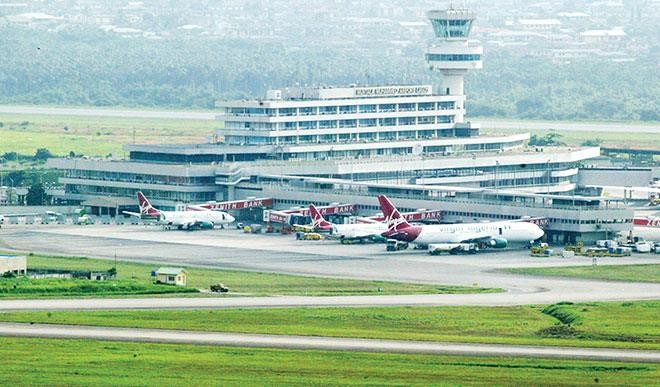Published
4 years agoon

Local airlines in Nigeria have bombarded the Central Bank of Nigeria (CBN) with application for their own cut of the N27 billion aviation bailout fund proposed by the Federal Government.
Report indicated that no fewer than 18 of the operating local airlines, including three commercial airlines – Dana Air, Max Air and Azman Air, and some others whose operations have been grounded in the last two years, are on the list of applicants for the relief fund.
However, Air Peace, Arik Air, Aero Contractors, Ibom Air, and Overland Airways were not on noticeably found absence on the list.
As part of efforts to mitigate the devastating impacts of the coronavirus pandemic and attendant lockdown of the airspace, the federal government pledged to support the entire aviation sector with bailout fund in the form of soft loan of not more than five per cent interest rate.
The lump sum, which also includes the operators and service providers, was in lieu of about N180 billion estimated to have been lost during the three months of lockdown.
Apparently fast becoming a reality, though belated, the airlines submitted applications to designated Lagos and Abuja offices, under the aegis of the Airlines Operators of Nigeria (AON).
Among the applicants that submitted are: Dornier Airlines, OAS Helicopters, Omniblu Aviation, Quorum, Allied Air, Top Brass, TAL, ANAP Jets, West Link, Jed Air, Executive Jets, Kings Airlines and First Nation Airways.
Others are Dana Air, Max Air Limited, Skyjet Aviation Services Limited, Skypower Express Airways.The documents were submitted and delivered to the coordinator, Allen Onyema, who is the Chairman of Air Peace, for onward delivery to the CBN Governor on behalf of AON.

Captain Noggie Meggison, AON Chairman
Captain Noggie Meggison, AON Chairman, said what the airlines were asking for was grants, “the same way it is done in the United States to save many airlines from the impact of COVID-19 on the aviation industry.”
Meggison regretted that many airlines might not come back to operations because of the huge impact the deadly disease and closure of airspace had done to not only the aviation industry, but all sectors of the country’s economy.
He said: “Aviation is a catalyst for economic growth. It is one of the sectors that should not be allowed to go under. It is a big sector like telecommunications, agriculture, and education among others. Government needs to help us. We are not talking about a palliative that the government is planning for the entire sector, but grants to assist the carriers.”
Meggison admitted that the government was equally looking for money to meet many of its obligations, but pleaded that the carriers needed assistance to surmount many challenges they currently face.
He reiterated that what the operators were asking for is totally different from government’s stimulus package that has been earmarked for settling workers’ salaries and other operational needs.
Meggison, who is also the Managing Director of Jed Air, equally lamented passengers’ apathy to air travel, stressing that many of the airlines are running at huge loss.
He said three airlines operated less than 40 passengers in their airplanes from Abuja to Lagos, describing it as not encouraging.
He advised that airlines should look at operating two flights a day, to curb the losses, adding that the factors that would drive traffic were not in place yet.
However, Group Capt John Ojikutu (rtd), the Secretary General of the Aviation Safety Round Table Initiative (ASRTI), said the loan should only reach airlines that were not indebted to services providers.
Ojikutu said government should direct the CBN to assess the debt portfolio of these airlines to be able to determine if any is entitled for the loan.
“Some airlines are said to owe as much as N13b. My worry is, some would get the loan or bailout the same way they collected the 2012 intervention fund without necessarily having need for it and could close shop like the Air Nigeria did, after collecting N35 billion at two per cent interest rate,” he said.














